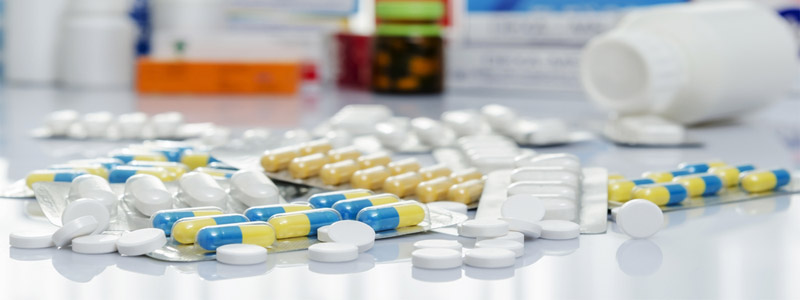
Redefining monocartons as secondary package will boost Indian pharma exports: Kezzler
Jayashankar Menon | @TheDollarBiz  In its latest effort to tackle growing instances of fake drug scandals in India and rising concerns in the international pharma market, the Indian government has redefined monocartons for packaging drugs as a secondary package which is expected to help trace products. While, some representatives of the pharma industry in India are against the move, citing cost escalation, Dr. Avijit Chaudhuri, Chief Business Officer, Kezzler, clears the air in an exclusive interview with The Dollar Business. Excerpts: TDB: Do you support the anti-counterfeiting measures taken by the Indian government? Avijit Chaudhuri: The alarming presence of counterfeit pharma products in certain African countries and elsewhere required the Commerce Ministry to quickly move to come up with a protective measure. India is one of the biggest economies in the world and given the importance of its pharma industry, its export industry, and the good name that people associate with the country, the Commerce Ministry and the Government of India simply had to take protective measures. The short-term pain to the industry in terms of the investments necessitated will be amply rewarded over the long term by the harmonization that Indian pharma exports will have with major regulated markets.
In its latest effort to tackle growing instances of fake drug scandals in India and rising concerns in the international pharma market, the Indian government has redefined monocartons for packaging drugs as a secondary package which is expected to help trace products. While, some representatives of the pharma industry in India are against the move, citing cost escalation, Dr. Avijit Chaudhuri, Chief Business Officer, Kezzler, clears the air in an exclusive interview with The Dollar Business. Excerpts: TDB: Do you support the anti-counterfeiting measures taken by the Indian government? Avijit Chaudhuri: The alarming presence of counterfeit pharma products in certain African countries and elsewhere required the Commerce Ministry to quickly move to come up with a protective measure. India is one of the biggest economies in the world and given the importance of its pharma industry, its export industry, and the good name that people associate with the country, the Commerce Ministry and the Government of India simply had to take protective measures. The short-term pain to the industry in terms of the investments necessitated will be amply rewarded over the long term by the harmonization that Indian pharma exports will have with major regulated markets.
 Dr. Avijit (Avi) Chaudhuri, Chief Business Officer, Kezzler
Dr. Avijit (Avi) Chaudhuri, Chief Business Officer, KezzlerTDB: Is the move to change the serialisation (bar-coding) requirements for exported drugs and defining monocartons as secondary packaging the right one? Avijit Chaudhuri: Something had to be done with regard to monocartons. After all, these are the items that are sold in the global marketplace and therefore by not serializing them, any national anti-counterfeiting effort to protect exported products was going to be ineffective. So, it boils down to what to do — do you redefine monocartons (and all other point-of-sale items for that matter) as a secondary package or do you move up the deadline for primary product level serialization and enforce it (recall that monocartons were previously defined as a primary package). By taking the first route, the government made the enforcement aspects of this decision much easier to carry out, since the secondary level serialization deadline has already passed last year. TDB: How will this impact the pharma players in India? Will costs increase significantly? Avijit Chaudhuri: No one likes extra regulation — it takes time, causes confusion, and requires money. However, there is a mistaken belief that serialisation is an extremely expensive requirement. Sure, there is going to be an added expense, as with any extra process. However, given that all exporters will have to undertake the needed investment and ongoing operational costs, there will be no differential effects among the domestic players themselves. And the extra cost of serialization, if handled with forethought and long-term planning, will actually be a very wise investment. Why? Because the pharmaceutical world is moving towards that and the new DGFT ruling now means that Indian exporters will be fully ready to meet the challenges in a competitive global environment. TDB: How will this impact small companies/exporters? Avijit Chaudhuri: I have been particularly concerned about the SME/microindustry sector. Consider this — there are literally hundreds of companies that either have niche products or niche markets to which they have had a tidy little business for many years, often with very thin margins. I know of companies that export less than one lakh products per year. How do you protect this important business sector and ensure that those hundreds of businesses remain viable? It is simply not an option for them to invest in new online equipment (printers, scanners, etc.) just to permit the variable coding that is necessary on such a small volume of products. Although the government's efforts at protecting exports is absolutely the right thing to do, we must be mindful of this very important industrial sector in India and ensure they are also helped. TDB: Kezzler has created an online service, Indian Pharmaceutical Export Serialization Program (IPES), for small businesses. What is the relevance of the programme, especially in the context of the current notification? Avijit Chaudhuri: Small businesses face several challenges -- they could be put out of business either because of non-compliance or because of very high unit cost. The Indian Pharmaceutical Export Serialisation (IPES) Program aims specifically at the SME sector. IPES allows us to provide our technology at the same cost to the SME sector as we do to the large companies in India. We have spent more than a year to refine the program and create what ended up being a highly acclaimed offering that is now also being rolled out in other global markets. And it all started here in India, where Kezzler began operations in 2006! TDB: How does IPES work? Avijit Chaudhuri: With IPES, SMEs can order small buckets of codes from Kezzler online which they can print on a local desktop label printer, and affix the serialized and barcoded label on their product (usually manually). There is no time limit on how quickly the purchased codes in an account have to be used. The only requirement is that the company truly be in the SME sector, and we evaluate very carefully. All codes are fully verifiable from anywhere in the world and meet international standards. TDB: Do you think the DGFT will mandate additional authentication features in future? Avijit Chaudhuri: Yes, it must, otherwise it's just a mere number on a product. Counterfeiters can copy numbers or come up with their own parallel serialization program. Serialization is merely the starting point — the very foundation — of an authentication and Track & Trace program that must be inducted if the menace of counterfeiting is to be eliminated.






 to success.
to success.